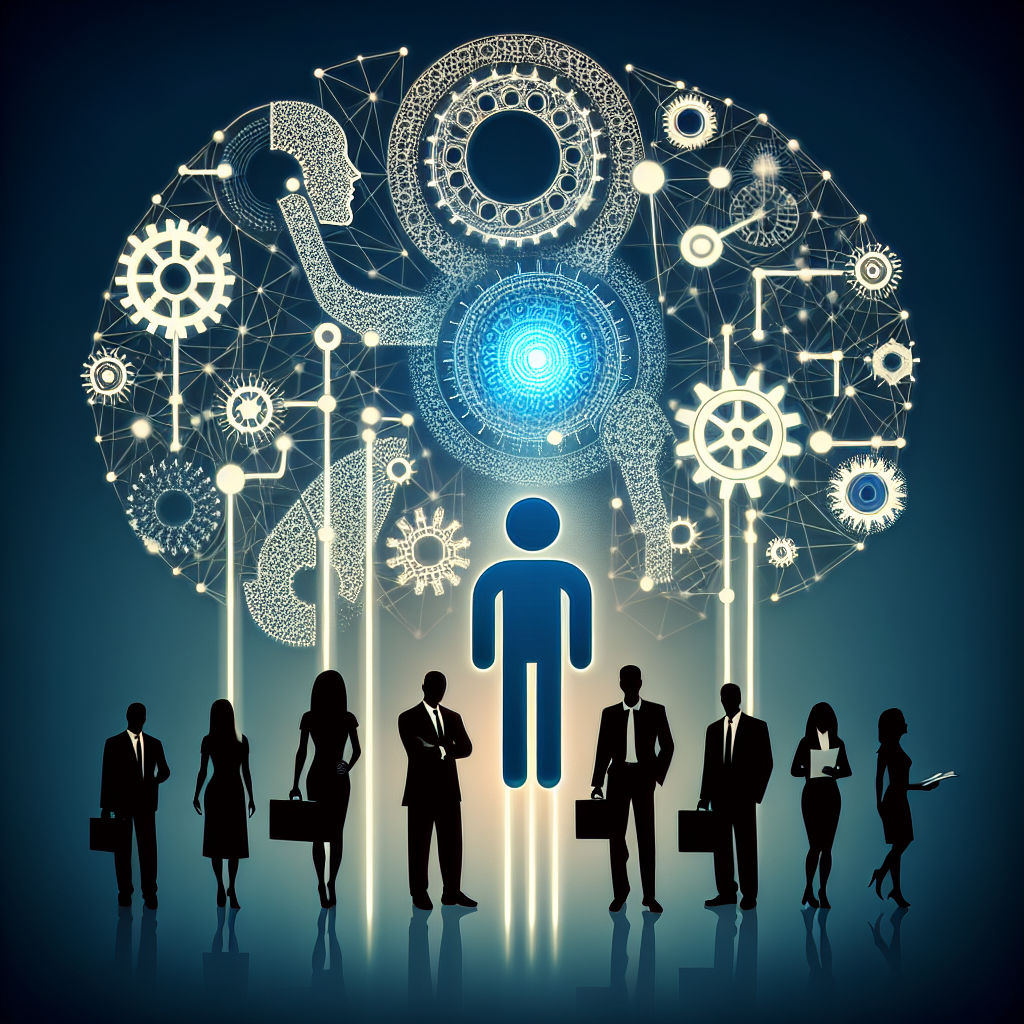The role of artificial intelligence (AI) in human resources (HR) is rapidly evolving, with many organizations turning to AI platforms to streamline processes, improve decision-making, and enhance the employee experience. These platforms are designed to automate repetitive tasks, provide data-driven insights, and support HR professionals in making more strategic decisions. In this article, we will explore the key benefits of using AI platforms in HR, discuss some common misconceptions, and provide answers to frequently asked questions.
Benefits of AI Platforms in HR
1. Increased efficiency: AI platforms can automate time-consuming tasks such as resume screening, scheduling interviews, and onboarding new employees. This frees up HR professionals to focus on more strategic initiatives and provide a higher level of service to employees.
2. Improved decision-making: AI platforms can analyze large amounts of data to identify patterns and trends that may not be apparent to human analysts. This can help HR professionals make more informed decisions about recruitment, training, and employee engagement.
3. Enhanced employee experience: AI platforms can provide personalized recommendations for career development, training opportunities, and benefits packages. This can help employees feel more engaged and motivated, leading to higher levels of productivity and retention.
4. Reduced bias: AI platforms can help reduce bias in the hiring process by focusing on objective criteria and eliminating subjective factors. This can help organizations build more diverse and inclusive teams.
5. Cost savings: By automating repetitive tasks and streamlining processes, AI platforms can help organizations save time and money. This can allow HR departments to operate more efficiently and focus on higher-value activities.
Common Misconceptions about AI in HR
1. AI will replace human HR professionals: While AI platforms can automate certain tasks, they are not intended to replace human HR professionals. Instead, they are designed to support HR professionals in making more strategic decisions and providing a higher level of service to employees.
2. AI is biased: AI platforms can be programmed to eliminate bias in the hiring process by focusing on objective criteria and eliminating subjective factors. However, it is important for organizations to carefully monitor and evaluate AI algorithms to ensure that they are fair and transparent.
3. AI is too complex: While AI technology can be complex, many AI platforms are designed to be user-friendly and easy to implement. Organizations can work with vendors to tailor AI solutions to their specific needs and provide training to HR professionals on how to use these platforms effectively.
Frequently Asked Questions about AI Platforms in HR
Q: How can AI platforms help with recruitment and hiring?
A: AI platforms can automate tasks such as resume screening, candidate sourcing, and interview scheduling, allowing HR professionals to focus on more strategic activities. AI can also analyze data to identify top candidates and predict which candidates are most likely to succeed in a role.
Q: How can AI platforms support employee development and training?
A: AI platforms can provide personalized recommendations for career development, training opportunities, and benefits packages based on an employee’s skills, experience, and goals. This can help employees feel more engaged and motivated to grow within the organization.
Q: Are AI platforms secure and compliant with data privacy regulations?
A: Many AI platforms are designed with security and compliance in mind, with features such as encryption, access controls, and data anonymization. Organizations should work with vendors to ensure that AI platforms comply with data privacy regulations and protect sensitive employee information.
Q: How can organizations evaluate the ROI of using AI platforms in HR?
A: Organizations can evaluate the ROI of using AI platforms in HR by measuring key performance indicators such as time saved, cost savings, employee satisfaction, and retention rates. By tracking these metrics over time, organizations can assess the impact of AI on their HR processes and make informed decisions about future investments.
In conclusion, AI platforms have the potential to transform the way HR professionals operate, providing valuable insights, automating tasks, and improving the employee experience. By leveraging AI technology, organizations can streamline processes, make more informed decisions, and drive better outcomes for their employees. As the role of AI in HR continues to evolve, it is important for organizations to carefully evaluate and implement AI platforms to maximize their potential benefits.

